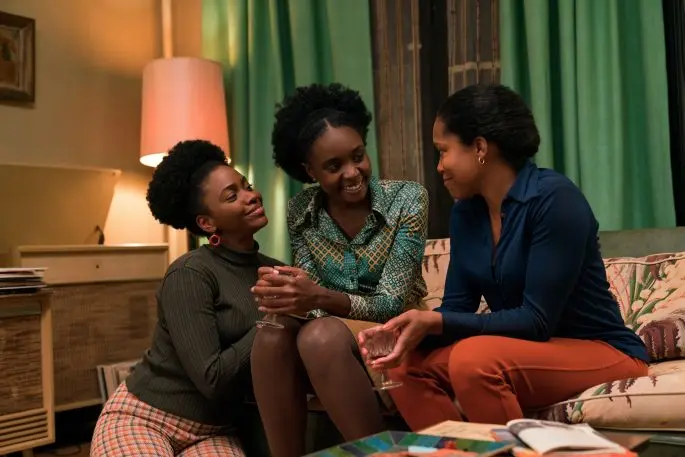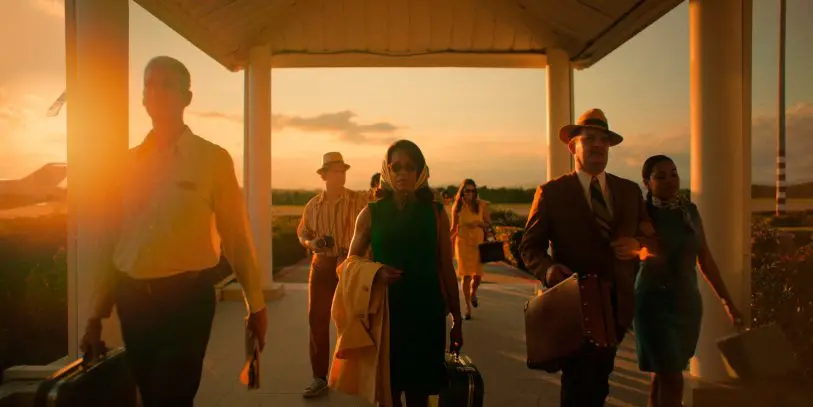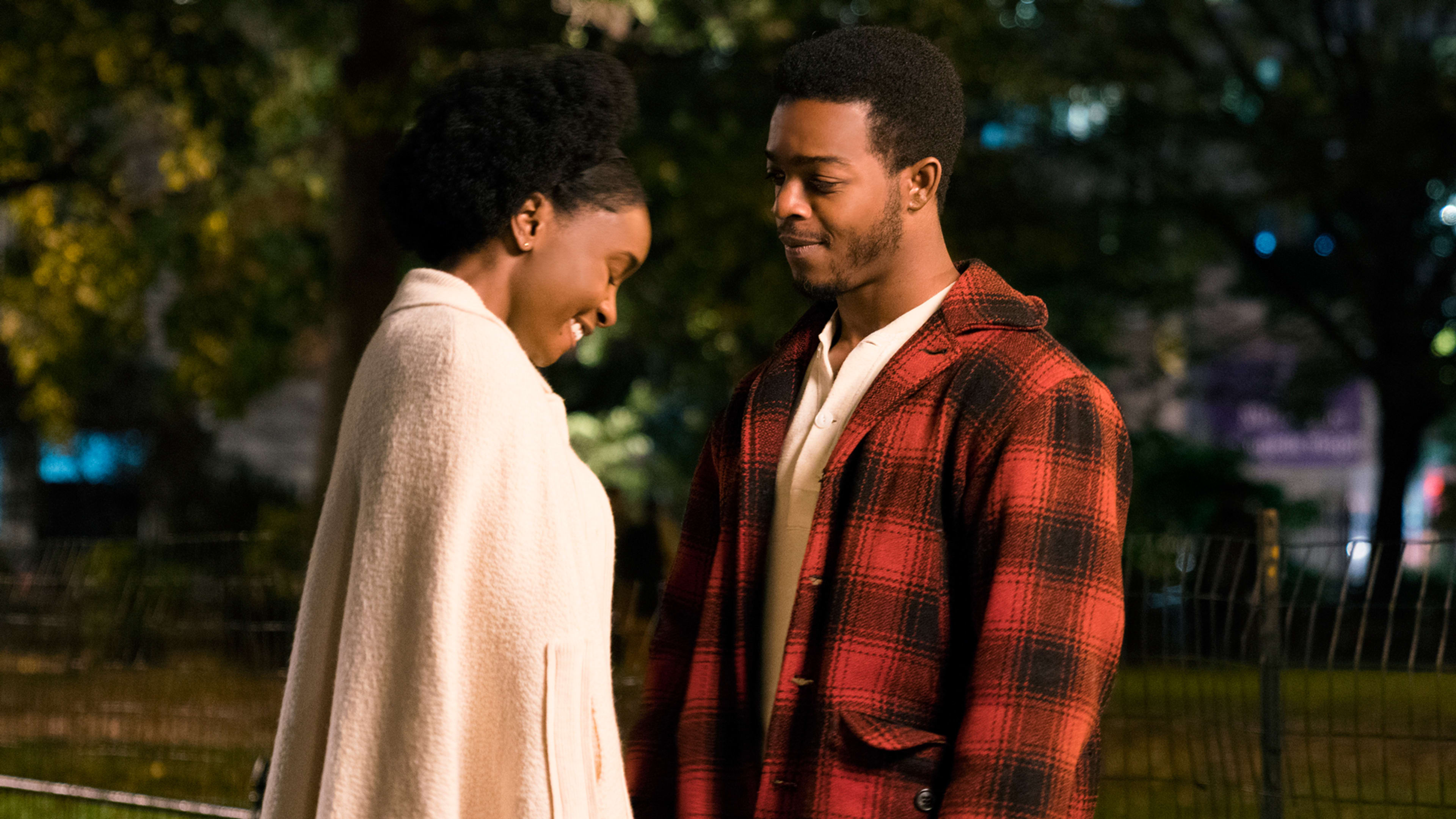Back in the summer of 2013, Barry Jenkins took on a steep challenge no one asked him to do: adapting James Baldwin’s 1974 novel If Beale Street Could Talk. Jenkins didn’t have permission from the notoriously protective Baldwin estate–he didn’t even have the clout of being the director of an Oscar winning movie yet (he was actually writing Moonlight around this same time). What Jenkins did have was a genuine passion for Baldwin’s novel, which he felt was just as necessary today as it was 44 years ago.
If Beale Street Could Talk tells the story of Fonny and Tish, a young black couple living in Harlem in the 1970s. When Fonny is arrested on fallacious rape charges, Tish and her family embark on an emotional trek to get him out of prison. The situation becomes even more urgent when Tish finds out she’s pregnant with Fonny’s baby. Baldwin’s novel is a poetic meditation on the systemic oppression of black people wrapped in a sweeping love story, so it’s no wonder Jenkins was pulled in.
“I think part of the power and the beauty of Mr. Baldwin’s writing is he was able to write about some very difficult things but always in a very sensitive way,” Jenkins says.
Baldwin’s family eventually entrusted Jenkins with If Beale Street Could Talk, making it the first time any of Baldwin’s work has been adapted for an English-language film. As if that didn’t add enough pressure and weighty expectations, If Beale Street Could Talk arrives after Moonlight’s Best Picture win in 2017, with the biggest budget, cast, and crew Jenkins has ever worked with. The filmmaker explains how he found his own voice through Baldwin and why it was so important for him to think small on a large scale.

“When you’re adapting someone whose work you revere as much as I revere the work of [Baldwin], there’s an intellectual challenge that you have to get through, which is, how do I take authorship of the piece?” Jenkins says. “The real challenge for me was getting to the point where I could allow myself to really be free, to always read the verse or read the syntax of Mr. Baldwin’s sentences and feel like I could take ownership over those sentences and translate them to visuals.”
Jenkins was careful not to dictate his authorship, but rather empower his team to figure out the story with him. There’s a scene in the novel where Sharon, Tish’s mother (played by Regina King in the film), flies to Puerto Rico to track down the woman who claims Fonny raped her. Clearly nervous with the task at hand, Sharon fusses with choosing a hat before heading to a nightclub to meet a man who can help her find who she’s looking for. In the film, however, Jenkins changed the hat to wig at King’s request.

“It’s one of the places where this process of adaptation crystalizes, where we take three pages of text in the book and summarize it in basically a silent film: two minutes of this woman looking at herself in the mirror putting on and taking off a wig,” he says. “And that came out of discussions with the actor. I’m not a woman. James Baldwin is not a woman. And yet this film is dominated by women. It’s told from the female point of view. So anytime the actresses had a suggestion or thought they felt very firm about, I had to check my directorial ego and listen.”
Allowing that level of creative collaboration is something Jenkins didn’t want to get lost, despite Beale Street being his biggest production to date.
“What I’m always trying to do, no matter what the scale is, is to create an environment where everybody on set, from the actors, the PAs, cinematographer, everybody, feels they have the space and the freedom to do their jobs in a way that allows for inspiration and intuition,” Jenkins says. “There’s a sequence in Beale Street where there are eight characters sitting in a living room. I’m a guy who’s really never made anything that featured more than two people sitting across the table. It’s trying to make eight people feel as free to experiment, to play, to fail as it was when there were only two people.”
As daunting as it was to take on the work of Baldwin, Jenkins feels like he struck a balance between his vision and Baldwin’s.
“It’s not about style so much–it’s about voice,” Jenkins says. “There are filmmakers who make films that are declarations, and I’m a guy who asks questions. It’s a voice [in my films] that is always asking, not pleading. And I think it’s really lovely to have created enough material now that people feel like they can trust [my] voice and that it’s a voice that they want to hear.”
Recognize your brand’s excellence by applying to this year’s Brands That Matter Awards before the early-rate deadline, May 3.
